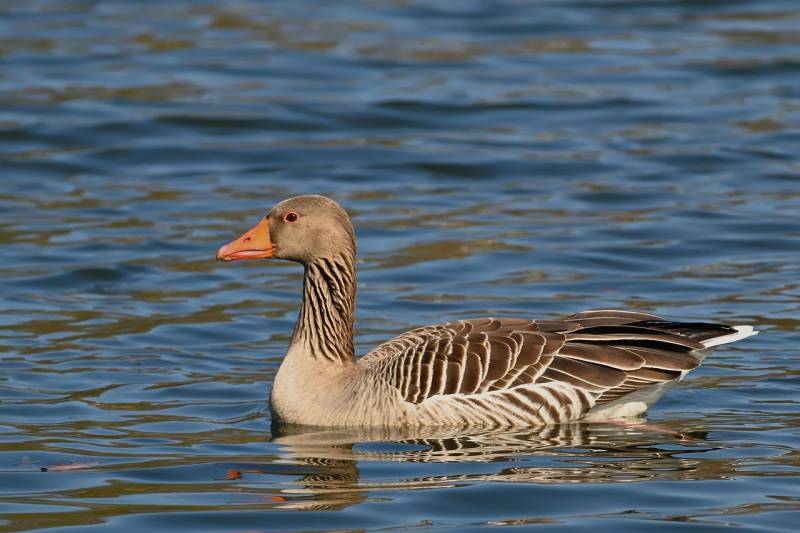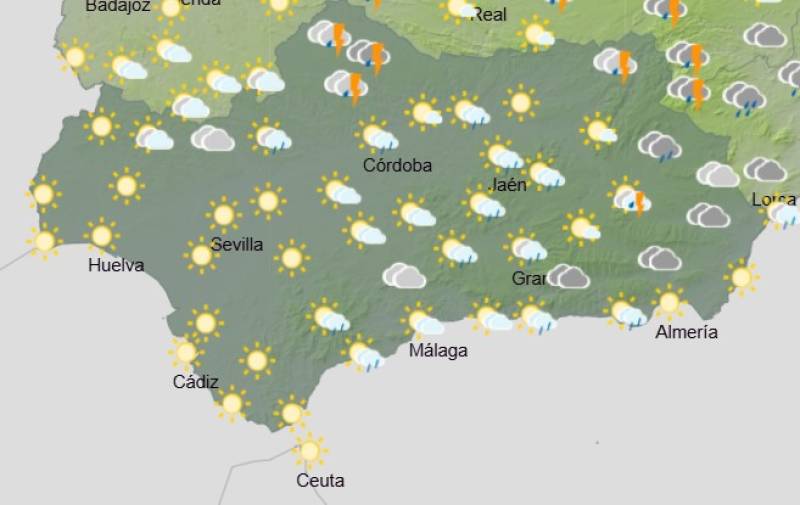

- EDITIONS:
 Spanish News Today
Spanish News Today
 Murcia Today
Murcia Today
 Alicante Today
Alicante Today
article_detail
Date Published: 19/09/2025
Andalucía calms fears as bird flu cases dwindle with no human infections
Regional government stresses vigilance and reassurance after 12 days without new suspected avian flu cases
 Andalucía has now gone 12 days without any new suspected bird flu cases. Even better, no infections in people have been detected. The regional government says it has tackled the situation with “rigor, anticipation, and coordination.” Ramón Fernández-Pacheco, the Regional Minister of Agriculture, Fisheries, Water and Rural Development, was keen to reassure people and farmers that the chance of bird flu spreading to humans is “very low.” He also pointed out that no human case has ever been seen in Andalucía.
Andalucía has now gone 12 days without any new suspected bird flu cases. Even better, no infections in people have been detected. The regional government says it has tackled the situation with “rigor, anticipation, and coordination.” Ramón Fernández-Pacheco, the Regional Minister of Agriculture, Fisheries, Water and Rural Development, was keen to reassure people and farmers that the chance of bird flu spreading to humans is “very low.” He also pointed out that no human case has ever been seen in Andalucía.So far, 14 tests have come back negative, with two more still being processed and four more planned. This matches earlier reports that showed no human infections despite several bird outbreaks across the region. (This follows the updates from 3 and 9 September.)
Most cases have been on two poultry farms in Huelva. About 17,000 birds were culled as a precaution. The farms are disinfected, and a 10-kilometre restriction zone is in place. Other farms around Huelva and Andalucía are being watched closely too. There was also one dead bird found on private land in La Puebla del Río. It was removed and disinfected, but no special restrictions apply there because it’s not a farm.
Wild birds have also been affected. Earlier this year, cases were spotted on the Cádiz coast. More recently, outbreaks popped up near the Doñana natural area in Aznalcázar (Seville) and Hinojos (Huelva). In Seville city, cases appeared in famous parks like María Luisa, Tamarguillo, and Miraflores, plus the Real Alcázar gardens. These parks closed briefly but are now open again after following safety rules.
Some dead birds in Seville’s Parque de los Príncipes and near the Guadalquivir River in Córdoba are still being tested. Meanwhile, a suspected outbreak in Málaga was ruled out – the birds there died of Newcastle disease instead.
It’s worth explaining that Newcastle disease is another viral illness that affects birds, especially poultry. It spreads easily and can be serious for bird populations but, unlike bird flu, it rarely affects people, and when it does, it usually only causes mild symptoms like eye irritation. Newcastle disease causes breathing problems, weakness, and sometimes nervous system issues in birds. There’s no cure, so prevention focuses on good hygiene and controlling spread, often including culling infected birds.
This update fits with earlier reports that confirmed bird flu as the cause of several bird deaths in Seville’s Tamarguillo Park and highlighted the spread to the Doñana natural area with emergency health protocols activated. Authorities continue to balance caution with reassurance, encouraging calm while keeping a close watch on the situation to protect both wildlife and people (as referenced in earlier articles on 3 September and 9 September).
In short, bird flu has been a worry, especially in Seville and nearby areas. But these latest updates offer hope. No new cases and no human infections show that the measures in place are working well. People and farmers can feel more confident, even though the virus isn’t gone yet. The government keeps watching closely and acting fast to keep everyone safe.
Image: Jürgen/Pixabay
staff.inc.and
Loading
Sign up for the Spanish News Today Editors Roundup Weekly Bulletin and get an email with all the week’s news straight to your inbox
Special offer: Subscribe now for 25% off (36.95 euros for 48 Bulletins)
OR
you can sign up to our FREE weekly roundup!
Read some of our recent bulletins:
Discount Special Offer subscription:
36.95€ for 48 Editor’s Weekly News Roundup bulletins!
Please CLICK THE BUTTON to subscribe.
(List price 3 months 12 Bulletins)
Read more stories from around Spain:
Contact Murcia Today: Editorial 000 000 000 /
Office 000 000 000






















